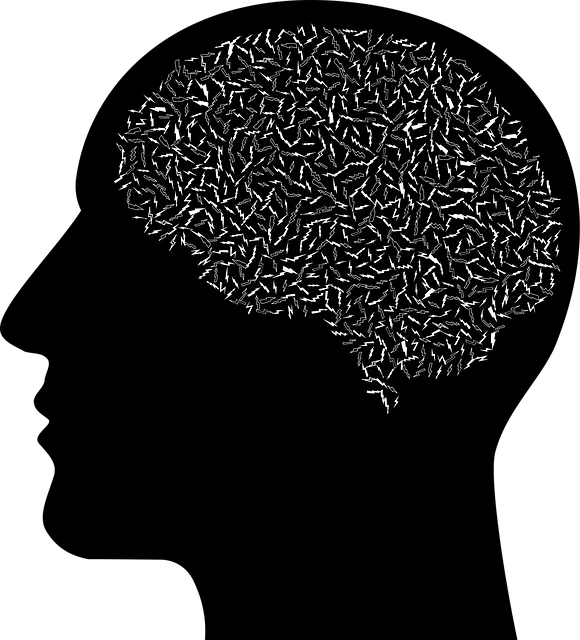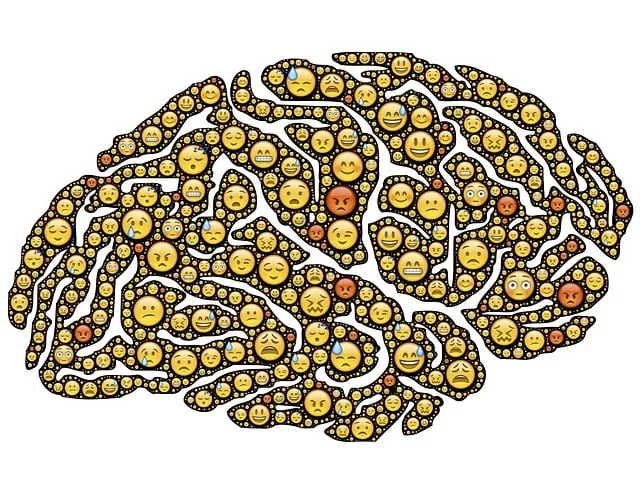Self-assessment tools for mental wellness are gaining traction as society recognizes their importance. Models like Kaiser Permanente's, based on evidence-based practices and self-esteem improvement techniques, empower individuals to track mental health progress. These tools should follow comprehensive models like the Parker Model, offering a holistic view of mental wellness and incorporating stress reduction methods and journaling exercises. Inspired by Kaiser Permanente's services, innovative tools provide personalized recommendations through user-friendly interfaces, combining scientific rigor with empathy. Testing and refining based on diverse user feedback ensure effectiveness in coping skills development, emotional intelligence, and cultural sensitivity.
Mental wellness self-assessment tools play a crucial role in empowering individuals to take charge of their mental health. With growing awareness about the importance of mental well-being, there is an increasing demand for accessible and effective assessment resources. This article explores the development of such a tool, drawing inspiration from established models like Kaiser Permanente’s approach and integrating the Parker Model for comprehensive evaluation. We’ll delve into each stage, from understanding user needs to testing and refinement, providing insights that could transform mental health support.
- Understanding Mental Health Self-Assessment Needs
- Researching Existing Tools: Kaiser Permanente's Approach
- Integrating Parker Model for Comprehensive Assessment
- Tool Development: Features and Functionality
- Testing, Feedback, and Refinement Strategies
Understanding Mental Health Self-Assessment Needs

Understanding Mental Health Self-Assessment Needs is a pivotal step in promoting individual well-being. With increasing awareness about mental health, there’s a growing demand for accessible and effective tools that people can use to assess their mental wellness independently. Tools like those developed by Kaiser Permanente, which often incorporate evidence-based practices, play a crucial role in empowering individuals to take charge of their mental health. The Parker model, for instance, has shown promise in helping users identify areas for improvement and track progress over time.
This need is even more pronounced in today’s fast-paced world where stress, anxiety, and depression are prevalent. Incorporating Self-Esteem Improvement techniques within these assessments can significantly enhance their impact. Mental Wellness Coaching Programs Development offers a structured approach to guide individuals through the results, fostering Resilience Building and encouraging proactive measures towards better mental health management.
Researching Existing Tools: Kaiser Permanente's Approach

When developing new mental wellness self-assessment tools, it’s crucial to build upon existing resources and best practices. Kaiser Permanente, a leading healthcare organization, has made significant strides in this area. They offer a range of mental health services, including a dedicated phone line (Kaiser Permanente mental health phone number) for easy access to support. By studying such initiatives, developers can understand user needs, identify gaps in current tools, and incorporate valuable insights.
Researching their approach to self-assessment reveals a blend of technology and human connection. Kaiser Permanente has developed digital platforms coupled with mental wellness coaching programs that guide users through assessments and provide personalized recommendations. This comprehensive strategy not only enhances public awareness campaigns development but also plays a vital role in Mental Illness Stigma Reduction Efforts, ensuring individuals receive timely and effective support.
Integrating Parker Model for Comprehensive Assessment

The development of mental wellness self-assessment tools should incorporate comprehensive models that capture various aspects of an individual’s mental health and well-being. One such model, the Parker Model for Comprehensive Assessment, provides a structured framework to evaluate psychological functioning. This model can be particularly valuable in guiding individuals through self-reflection and identifying areas of concern, especially when tailored to specific populations.
By integrating the Parker Model, assessment tools can offer a holistic view of mental wellness, encompassing symptoms, functional impairments, personal strengths, and cultural influences. This approach is aligned with the evolving standards in mental healthcare, such as those promoted by organizations like Kaiser Permanente, which emphasize the importance of personalized care and Cultural Sensitivity in Mental Healthcare Practice. Moreover, incorporating Stress Reduction Methods within these tools can empower individuals to take an active role in managing their mental health. As a result, users may benefit from enhanced self-awareness and improved coping strategies, as suggested by various studies on the effectiveness of Mental Wellness Journaling Exercise Guidance.
Tool Development: Features and Functionality

The development of a comprehensive self-assessment tool for mental wellness is a multifaceted process, designed to equip individuals with insights into their emotional and psychological states. Incorporating evidence-based practices such as Compassion Cultivation and Mindfulness Meditation, this tool aims to foster self-awareness and provide a platform for personal growth. Users can expect an interactive experience that combines assessment questionnaires, guided exercises, and tailored feedback, all accessible via user-friendly interfaces.
Key features include the integration of Communication Strategies to facilitate reflection and dialogue, promoting active engagement with one’s mental health journey. Drawing inspiration from established frameworks, such as those offered by Kaiser Permanente, the tool ensures a structured yet adaptable approach. By combining scientific rigor with empathy, it offers personalized recommendations for further support, encouraging proactive mental wellness management.
Testing, Feedback, and Refinement Strategies

Testing, feedback, and refinement are integral components of developing robust mental wellness self-assessment tools. Once an initial prototype is created, it’s crucial to engage a diverse range of users to pilot test the tool. This process involves gathering quantitative and qualitative data through surveys, interviews, or focus groups. Users can offer insights on the tool’s usability, clarity of questions, and overall effectiveness in assessing mental wellness.
Feedback from these sessions should be meticulously analyzed to identify areas for improvement. The Kaiser Permanente mental health phone number (or similar support services) can serve as a valuable resource for understanding real-world application needs. By integrating this feedback, the tool can be refined to enhance its accuracy and adaptability to different populations, ensuring it effectively supports Coping Skills Development, Emotional Intelligence, and Cultural Sensitivity in Mental Healthcare Practice.
In developing mental wellness self-assessment tools, understanding user needs is paramount. Researching existing platforms like Kaiser Permanente’s approach offers valuable insights, while integrating models such as the Parker Model ensures comprehensive evaluation. By focusing on features like accessibility through a mental health phone number and user-friendly functionality, these tools can significantly enhance individual assessment and support. Continuous testing and refinement, inspired by best practices, are crucial to creating effective resources for mental health awareness and management.






